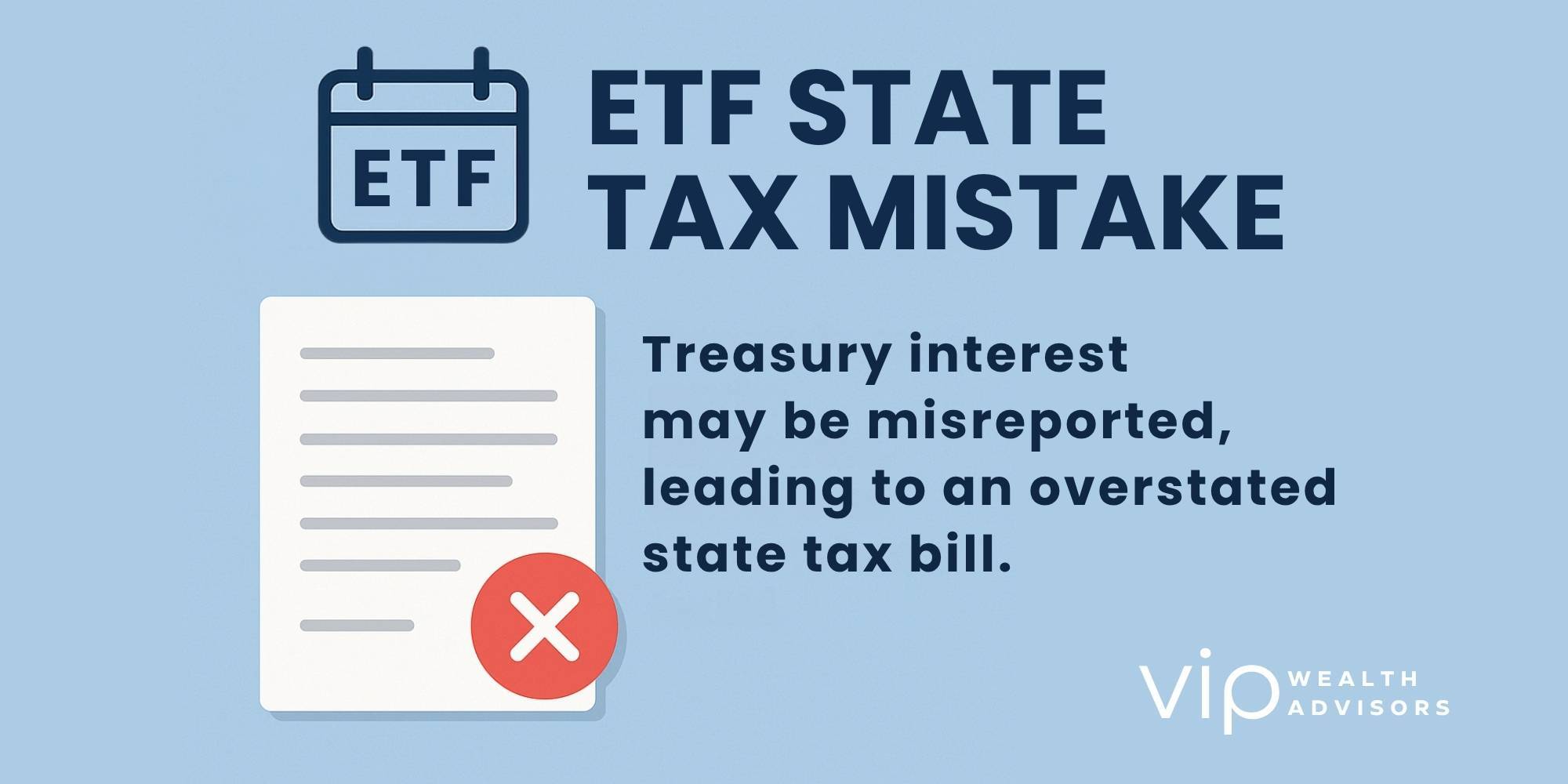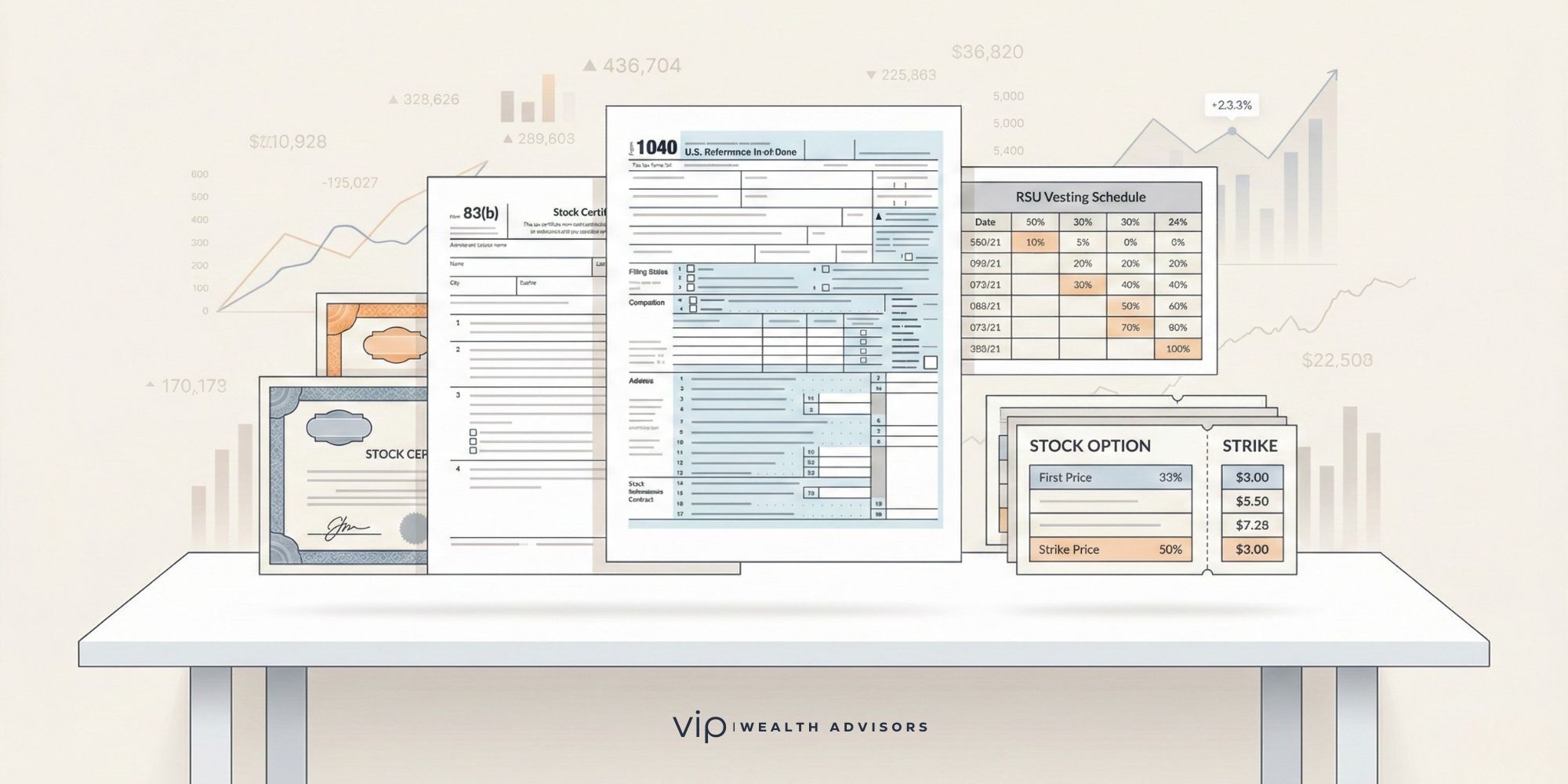Why your “safe” ETF might be costing you more in state taxes than you think
When high-income investors look to protect capital and earn modest yield, short-term Treasury ETFs like BIL, VGSH, or SHV often rise to the top of the list. After all, they’re backed by the U.S. government and—bonus—Treasury interest is exempt from state income tax.
But here's the catch no one talks about:
If you own these ETFs in a taxable account, your custodian might not report that Treasury income correctly. And that could mean you're overpaying your state tax bill by hundreds or even thousands of dollars.
How Does This Happen?
Most custodians—including Schwab and Altruist—report income from Treasury-heavy ETFs as non-qualified dividends on the 1099-DIV. That’s likely an IRS rule. But here’s where the real difference kicks in:
- Some custodians stop there. That leaves your CPA with no way to know that a portion of those dividends came from state tax-exempt Treasury interest.
- Others provide a supplemental report breaking down the percentage of income attributable to U.S. government securities. That extra step makes all the difference in getting the tax treatment right.
Let’s break it down:
- $100,000 invested in BIL earns ~4.25% = $4,250 of income
- In North Carolina (5.25% state tax rate), that’s $223 in potential state tax
- But that’s tax you arguably shouldn’t owe if the income came from Treasuries
- Multiply that across multiple accounts and years… you’re leaking dollars
So, Who’s Helping—and Who’s Not?
At VIP Wealth Advisors, we examined how different custodians report this income.
Here's how it shakes out:
| Custodian | 1099 Reporting | Treasury Income Breakdown Provided? | Adjustment-Friendly for Tax Prep? |
|---|---|---|---|
| Schwab | 1099-DIV (non-qualified dividends) | ❌ No | ❌ No support for tax adjustment |
| Altruist | 1099-DIV (non-qualified dividends) | ✅ Yes (via supplemental report) | ✅ Allows CPA to adjust manually |
| TreasuryDirect (Individual T-bills) |
1099-INT (interest income) | ✅ N/A (direct reporting) | ✅ No adjustment needed |
| Fidelity | Varies by platform | ❓ Sometimes (hard to find) | ❓Inconsistent |
Without that supplemental breakdown, most CPAs won’t even know there’s an issue. And unless you ask, most advisors won’t bring it up.
Why This Matters More Than Ever
This is exactly why we built VIP Wealth Advisors to offer full-scope tax preparation in-house. We don’t just build the plan—we file the return, optimize your tax strategy, and catch the small details that fall through the cracks in most advisory firms.
No handoffs. No gaps. No “go ask your accountant” when it comes to implementation.
When your advisor and tax pro are the same team, you don’t lose money to silence or confusion.
The Takeaway
What looks like a 4.25% yield might not really be 4.25% if you're paying state tax on income that should be exempt.
And if your advisor or CPA isn’t reviewing your 1099s for issues like this, it's likely slipping through the cracks.
This is exactly the kind of tax nuance that separates a generic money manager from a true personal CFO.
If your current advisor hasn’t brought this up, ask yourself: What else are they missing?
And when you're ready for a second set of eyes, we're here.
We do the planning, the investing, and the filing—under one roof. That’s how wealth gets preserved.








